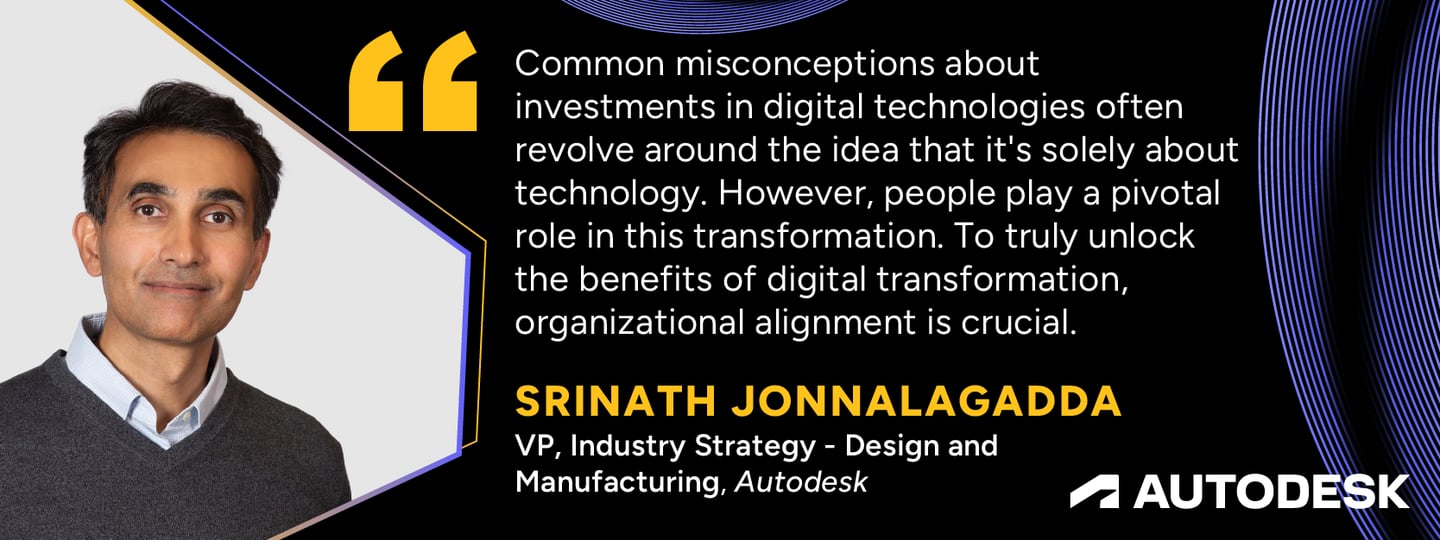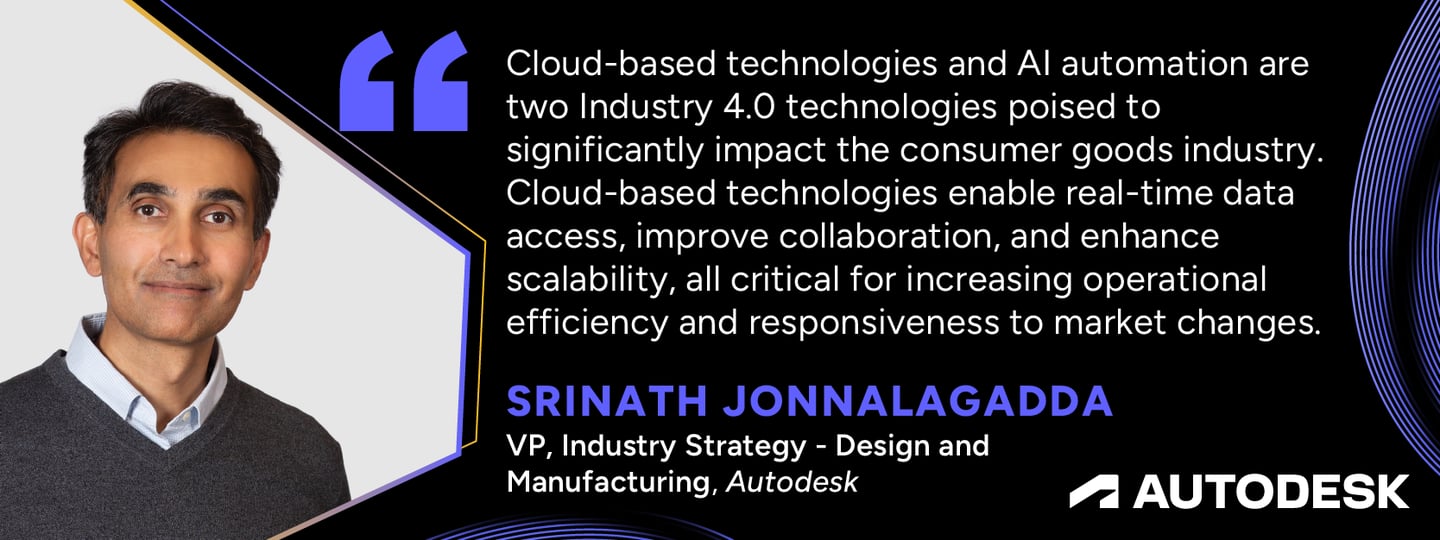How to Modernize the Supply Chain With Industry 4.0 Digital Integrations
The scope of Industry 4.0 has evolved significantly since its inception, and today’s consumer goods companies are at varying stages of modernization with their organizations. The end game is comprehensive digital integration across the entire supply chain, fostering greater connectivity and data exchange from suppliers to customers. This modern framework also prioritizes sustainability, aiming to reduce environmental impacts through smarter resource management and innovative technologies.
In this exclusive Q&A, Srinath Jonnalagadda, the VP responsible for industry strategy for the design and manufacturing business at Autodesk, outlines how consumer goods companies can get closer to this Industry 4.0 supply chain goal with cloud-based technologies and AI automation that increase efficiency and reduce operational costs.
CGT: In your recent work with consumer goods companies, what are some of the manufacturing and supply chain challenges they all seem to have in common?
Srinath Jonnalagadda: With consumer goods companies, we've observed several common manufacturing and supply chain challenges. These include the need for faster ideations and upfront collaboration, which is crucial in maintaining the pace of innovation. Additionally, these companies often struggle with ensuring a smooth handover to production, as well as fostering effective value chain collaboration.
A significant barrier to both these aspects is the presence of data silos within the organization, which can hinder information sharing and overall efficiency. Addressing these challenges is key to improving the manufacturing process and optimizing the supply chain.
CGT: What are some of the technologies associated with Industry 4.0 that you think will have the most significant impact on the consumer goods industry?
Jonnalagadda: Cloud-based technologies and AI automation are two Industry 4.0 technologies poised to significantly impact the consumer goods industry. Cloud-based technologies enable real-time data access, improve collaboration, and enhance scalability, all critical for increasing operational efficiency and responsiveness to market changes.
Furthermore, the automation of non-value-added tasks via AI can streamline processes, reduce errors, and free up human resources for more strategic, value-adding work. These advancements not only increase productivity and cost-effectiveness but also drive innovation and customer satisfaction in the consumer goods industry.
CGT: Where do you see the most progress occurring right now for companies that have made investments in these technologies?
Jonnalagadda: Companies investing in cloud technologies and multidisciplinary product development are making significant progress. The adoption of cloud technologies is breaking down data and discipline silos, fostering collaboration, and speeding up the product development cycle.
This not only leads to faster time to market but also enables a higher frequency of product introductions, giving companies the ability to increase their market share. Thus, these technological investments are not just enhancing operational efficiency and productivity but also driving business growth and competitiveness in the market.
CGT: What are some common misconceptions about these types of investments?
Jonnalagadda: Common misconceptions about investments in digital technologies often revolve around the idea that it's solely about technology. However, people play a pivotal role in this transformation. To truly unlock the benefits of digital transformation, organizational alignment is crucial. Another misconception is that these investments are too difficult to implement.
While it's true that digital transformation can be complex, choosing the right strategic partner can greatly simplify the process. They can help develop a solid and executable plan that aligns with the company's objectives, mitigating the perceived difficulty. The key is to view these investments as a holistic change involving both technology and people.
Learn more about Autodesk Fusion, a cloud-based design and manufacturing platform for consumer goods.





